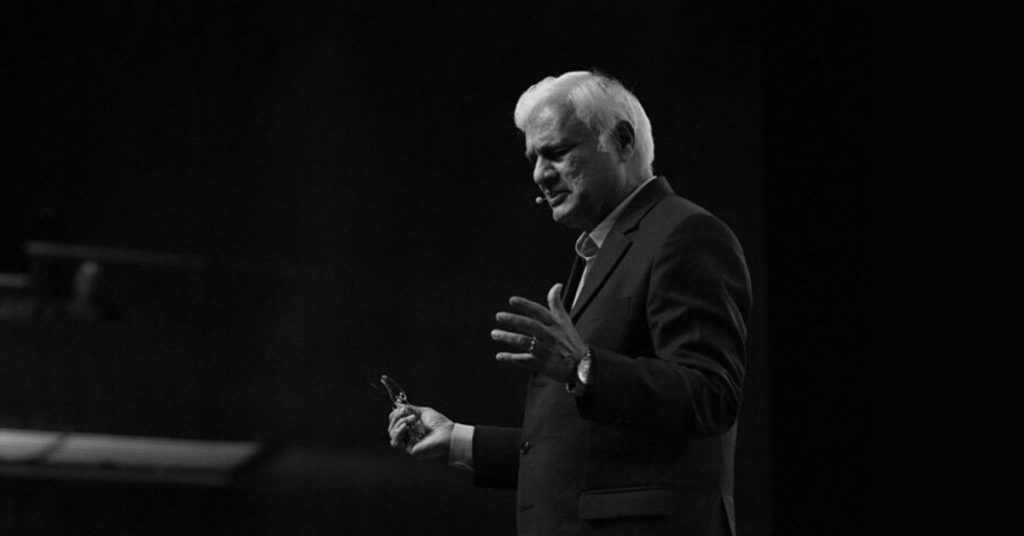February 12, 2021
Carl, Ravi and the God of 1Samuel

I read the RZIM public announcement about Ravi Zacharias today, followed by a Vanity Fair expose of the fallout from Carl Lentz at Hillsong New York.
Sad and sobering.
Sad for those victims of Ravi and for those who were swept up in Carl’s very expensive designer train. Sad too that there is often so much obfuscation around these matters from the organisations involved, until the dam wall bursts and it all comes out. It’s just such a familiar trope.
I have good friends who worked with RZIM and I have good friends who attend Hillsong, though not, it has to be said, in New York. But New York or not, the ripples will reach distant shores, that is for sure.

So a sad double blow day to be reading this stuff. And off the back of a year in which the spiritual abuse situation that was birthed in the church planting network The Crowded House in the UK occupied much mental energy.
But sobering too. Because yet again we are reminded that the public exposure that these two men have experienced, the judgement of human courts and media, is but a taste of the final day exposure that we all must face.
And with mortality approaching Ravi, who went from illness to death in the space of a few months, this would surely have been most confronting. I assume. Did he privately confess these sins to our Holy God, and repent, knowing that later others would have to clean up the mess when he was gone? We cannot know. We hope he did at least see the need to repent before he died and “after that the judgement” (Heb 9:27).
There’s a stark contrast between an old lech who gets massages from young, disempowered migrant workers, and the uber cool sexual exploits of a younger, good looking Christian influencer who makes the pages of the gossip mags for his adulteries.
On the surface at least.
Because that’s where the difference is. On the surface. We’re starting a preaching series on 1 Samuel this coming week at church, and it’s a confronting read. 1 Samuel comes into a confronting time, the context being the end of the book of Judges in which we read:
In those days there was no king in Israel. Every man did what was right in his own eyes. (Ju 21:25).
I’m using the word “man” here instead of non-gendered language for the simple reasons that the book of 1 Samuel starts with the words “There was a certain man”.
In the Hebrew Scriptures, the book of Ruth, which divides Judges from 1 Samuel in our Bibles, is compiled with The Writings. So in the Hebrew Scriptures we jump straight from “every man doing what was right in his own eyes” to “Now there was a certain man”.
In other words, here we go again. The merry-go-round of everyone doing what they want, and excusing or hiding it, continues.
But straight away in 1 Samuel you realise that something is different. Starting with the virtual spiritual blindness of the priest Eli to realise that the barren Hannah is praying in her heart, and is not drunk after all, we get story after story of visible greatness, obvious strength, clear cut cases of heroes, yet none of this greatness, strength (or even the visibly heroic) being that which we need, or that God will use.
Nor those who are supposed to be the guardians of the spiritual gates of God’s Holy Place, the priests chosen by Him to maintain his covenant relationship with Israel. God is working outside where they are. And the reason is clear as we read on in the story when God sends Samuel to anoint one of Jesse’s sons as king in place of the clearly gifted and superior Saul:
6 When they came, he looked on Eliab and thought, “Surely the Lord’s anointed is before him.” 7 But the Lord said to Samuel, “Do not look on his appearance or on the height of his stature, because I have rejected him. For the Lord sees not as man sees: man looks on the outward appearance, but the Lord looks on the heart.” (1 Samuel 16:6-8)
And when it says “man looks on the outward appearance” it doesn’t mean everyone else except for me. It means me! This man writing this blog post. So often, despite what I know Scripture says, I look on outward appearances too, and unless the Spirit of God convicts us to do otherwise, we will all tend to do that at some level, with some kind of person or persona.
So for some in the evangelical world, the outward appearance of academic credentials, mellifluous tones, and aged gravitas with an aroma of worldly-wise and well travelled is the lure to judge by the external.
For others, that has no appeal at all. The appeal they look for is rock star appeal. Tight abs with low shorts, great hair and tattoos, and a public persona that just says celebrity. Oh, and cool with the non-Christians too.
And before we get all self-righteous and “harrumph, harrumph“, just stop and paint the picture of the man, or the woman, or the group, that may do the same for you. That could draw you away, through your own predilections, towards putting your hopes in outward appearance and ignoring what might be going on in the heart. Or at least refusing to believe it’s possible.
In a sense the antidote is not simply to never trust others again. That would lead to a cynical, woeful world, in which we circle everybody, never landing, never embedding, never committing, never being transparent.
The antidote is not to trust ourselves too much. The solution is not to assume that when we see something we like, or see someone we admire (for a whole bunch of psychological, cultural or spiritual reasons), that the surface is all of the reality. It never is. With anybody.
It’s why we read in Jeremiah 17:
The heart is deceitful above all things,
and desperately sick;
who can understand it?
10 “I the Lord search the heart
and test the mind,[b]
to give every man according to his ways,
according to the fruit of his deeds.”
Same as we read in 1 Samuel. The heart that is most deceitful towards us is not the heart of the fallen Christian celebrity. It is our own hearts. And one of the ways in which it deceives us is the manner in which it shapes itself towards the outer appearance of other people as the defining mark of what they must be like internally.
If there’s one takeaway you would get from a view of the Bible from 30 thousand feet, it must be that the Bible leaves us with no doubt that God does not just see our secret actions, but our hidden motives.
None of which is to say that all of the motives we have are dreadful, clearly the Bible speaks of having clean hands and a pure heart, and the New Testament is full of admonitions to confess sin, receive forgiveness and purification from Jesus, and to love one another from a pure heart. The Holy Spirit indwelling us is our only hope!
Which brings us back to those words in Hebrews 9. We are appointed to die once, and then judgement, upon which time I presume we will have even our thoughts and motives revealed to us.
Is there any hope? Is there any way forward? Well let’s put that verse in its context. Hebrews 9 says this:
But as it is, he (Jesus) has appeared once for all at the end of the ages to put away sin by the sacrifice of himself. 27 And just as it is appointed for man to die once, and after that comes judgment, 28 so Christ, having been offered once to bear the sins of many, will appear a second time, not to deal with sin but to save those who are eagerly waiting for him.
The letter to the Hebrews lists a lot of great people – heroes of the faith – and great objects of visible outward worship too. But it’s the invisible reality towards which these people and objects point that we are to be drawn to. Even the heroes are only heroes because their hope was in a city they could not yet see (Hebrews 11). No designer clothes and private jets for them, yet we are told the world was not worthy of them.
And Jesus – once visible, now for a time not visible to us -, is presented as greater than, better than, superior to, absolutely everyone and everything. The true man after God’s own heart.
The true God who had a human heart and in whose heart was found no deceit. What you saw with Jesus was what you got! Amazing. Liberating. No wonder so many were drawn to him and healed not hurt, absolved not abused, loved not lured. Doesn’t Jesus just shine at times like this?!
The sobering events we see almost weekly in which supposedly spiritual leaders abuse and mislead, should not excuse behaviour, but it should push our hope onto Jesus. It should push us to live in such a way that our very inner life demonstrates that we are among those “who are eagerly waiting for him.” And it should push us to spend time with those whose own lives are transparent and whose own desire is for His return.
There is one man – and only One – whose inner life matched his outer life. And he did not use that to his advantage to control and manipulate people, but rather, gave up that one pure life for those of us who are not even completely aware of our own motives never mind the motives of others.
May that be our hope, and may that man be our model, as we watch these all too sadly familiar stories roll out for public display.
Written by
There is no guarantee that Jesus will return in our desired timeframe. Yet we have no reason to be anxious, because even if the timeframe is not guaranteed, the outcome is! We don’t have to waste energy being anxious; we can put it to better use.
Stephen McAlpine – futureproof
Stay in the know
Receive content updates, new blog articles and upcoming events all to your inbox.


